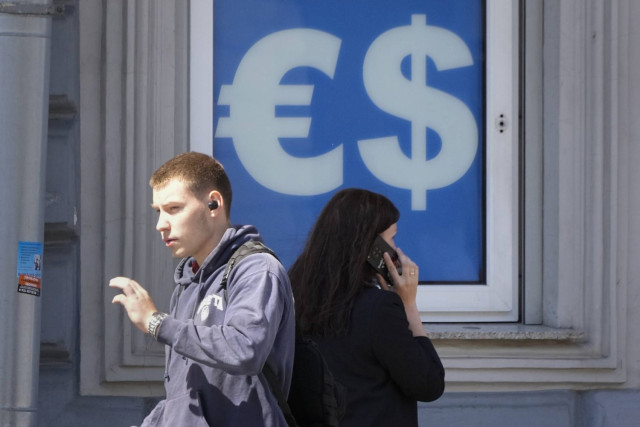The dollar On Monday remained strong while the euro hovered near its lowest level in over a month, due to political instability in Europe increasing uncertainty among traders. Investors were also waiting for more data to assess the US economy's strength.
Traders have been concerned about the potential budget crisis in the euro area, as right-wing and leftist parties gain traction before France's snap parliamentary election, putting pressure on President Emmanuel Macron's centrist government.
EDespite the recent sharp decline in French financial markets, the European Central Bank officials reportedly have no immediate plans to discuss emergency purchases of French bonds.
The euro edged down by 0.1% to $1.0699, after dropping to its lowest level since May 1 at $1.06678 on Friday. It also recorded its largest weekly decline since April at 0.88% last week.
Head of research at Pepperstone, Chris Weston, mentioned that traders are seeking certainty, which may not come until after the second-round vote on July 7, potentially leading to further declines in French and EU markets.
The dollar index, which measures the US currency against a basket of six others, held steady at its highest level since May 2, primarily due to the euro's weakness.
Matt Simpson, senior market analyst at City Index, pointed out that since the euro accounts for about 57% of the US dollar index weighting, the euro's decline indirectly benefits the dollar.
Minneapolis Federal Reserve President Neel Kashkari indicated on Sunday that it was a "reasonable prediction" for the US central bank to cut interest rates once this year, likely waiting until December to do so. The Fed's updated projections last week showed that the median forecast from all 19 US central bankers was for a single interest rate cut this year.
This week is light on major US economic data to provide clarity on the Fed's outlook, although US retail sales on Tuesday and flash PMIs on Friday may offer some insights into consumer activity.




















